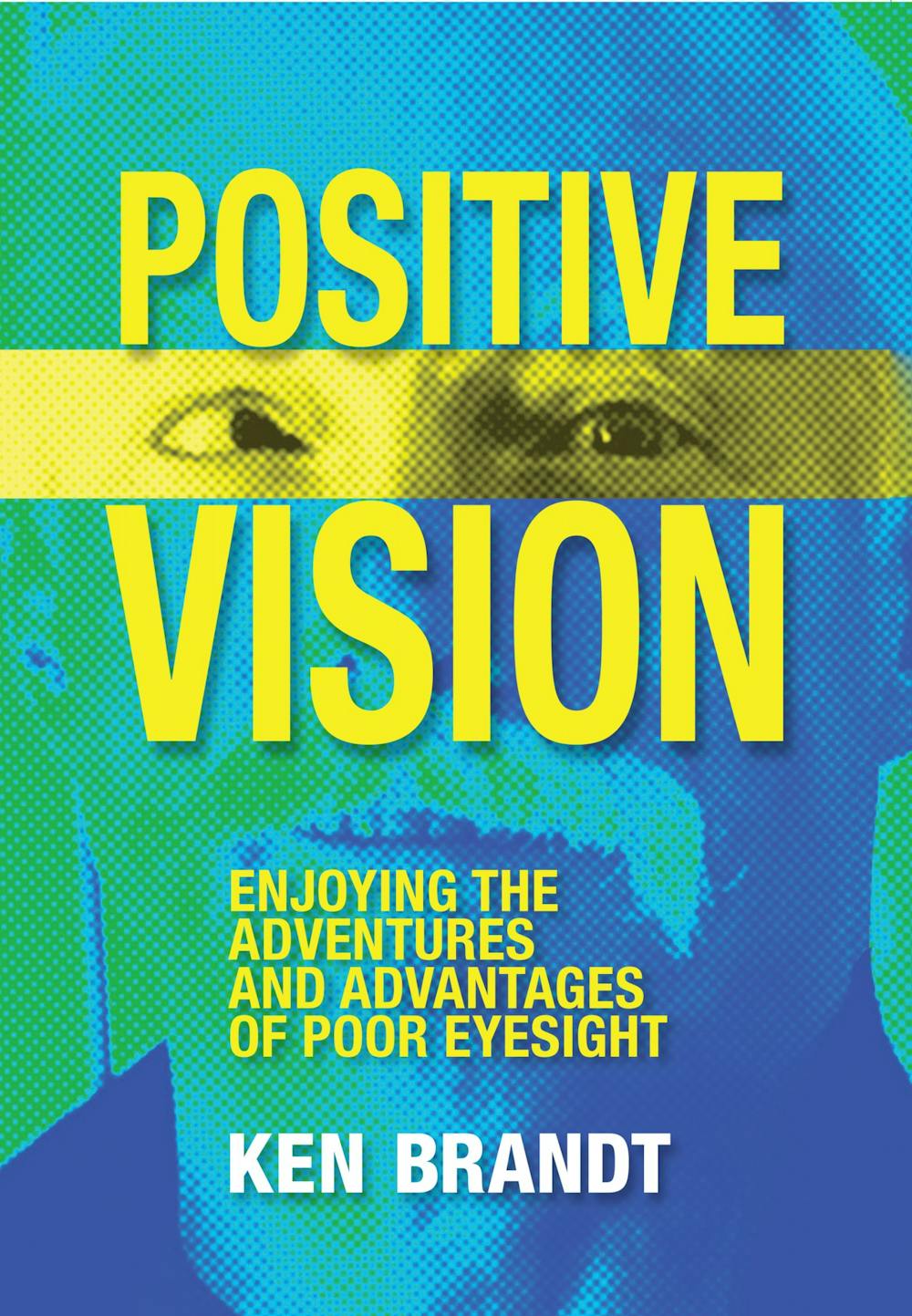When Ken Brandt attended American University, he and his friends responded to a club advertisement that invited students to meet in the Tavern, drink beers and learn about the parachuting club. After the meeting, Brandt decided to learn competitive skydiving with the team at a place in Downsville, Maryland.
“You crawl outside the plane through the open door until you're standing on this metal rod over the wheels, and you're holding on to this other metal rod under one of the wings,” Brandt said.
“And then, … you let go and the plane is flying away. After a little while, your parachute opens, and it's the greatest feeling in the world.”
Brandt, a 1977 AU alum, has spent a large part of his life being legally blind, and he said that his vision has been a rollercoaster. He has had six eye operations throughout his life and, now, his eyesight is 20/80 in his good eye and 21/60 in his other.
“I found out from my eye doctor that it's a really bad idea to parachute if you'd had a detached retina operation in either eye because a sudden jolt to the head could cause the retina to detach again, and you could go blind in that area,” Brandt said. “I did, reluctantly, give up my parachuting.”
While Brandt ended his competitive skydiving career, his stories from that experience, among others, are all anecdotes in his self-published book, “Positive Vision: Enjoying the Adventures and Advantages of Poor Eyesight.” The book took Brandt two years to write because he kept thinking of new stories that he could add in. It was released on Sept. 18.
Brandt graduated from AU with a bachelor’s degree in political science and economics. He spent most of his career in information technology and security, but he rarely talked about his poor vision.
“I never wanted to discuss my vision really with anybody for my entire career, because I didn't want anybody feeling bad for me, and I didn't want it to be detrimental to job opportunities or anything,” Brandt said. “So I just never talked about it.”
That changed after he retired and, as he said that he “didn’t have to care as much about his career.”
“I had a bunch of stories that people have liked hearing that I've told over time, over my life to different people, so I just put them all in a book,” Brandt said. “Hopefully, people like the adventures, and they like the jokes, and they like the humor, and I actually help some other people with poor vision.”
Brandt had to fight a lot of his instincts of writing in business-sounding prose.
“During the course of my business career, I wrote lots and lots of stuff, but it was exactly the opposite of what you'd want in an interesting book,” Brandt said. “Luckily, I had also been, over the course of my life, telling a lot of these stories at different times over coffees or beers or whatever. So that's what really helped me, I tried to write it like I would speak it.”
Of the 10 chapters in his book, the eighth chapter is titled, “Beauty, Relationships, Racial Harmony.” In this chapter, he writes about how, when looking at big picture landscapes like mountain ranges or oceans, it is easy for everyone to appreciate its beauty. However, he believes those sights may be more beautiful for those with poor vision.
“Somethings that maybe don't look as nice are smaller and harder to see, like it might be a little bit of graffiti or a little bit of smog or some paint falling off or some litter on the mountains,” Brandt said. “Well, if you have poor vision, you don’t see that so well, you see the big, beautiful thing. So the world literally is a more beautiful place.”
Brandt will be donating 5 percent of his royalties to Massachusetts Eye and Ear, a specialty hospital in Boston for eye research, and an additional 5 percent to The Fred Hollows Foundation, a nonprofit focused on treating and preventing blindness.
As for what’s next for Brandt, the end of his book provides a potential sneak peek.
“There's a note saying, if you've read this book, and you have some poor vision related adventures or anecdotes or jokes or anything, and you want to contribute them to a follow-up book, just send them to me on the website, and I'll combine them,” Brandt said. “Will that work? I have no idea, but if it does that could be a fun book, just a conglomeration of different ideas.”
Brandt said that he is not trying to say that poor vision is inherently better than good vision. He encourages people to protect their eyes and follow the medical advice of doctors.
“Just be grateful for whatever level of vision you have,” Brandt said. “Whatever you want to do, just go for it. Don't let your vision get in the way, and enjoy the humor and stuff that happens on the way.”





